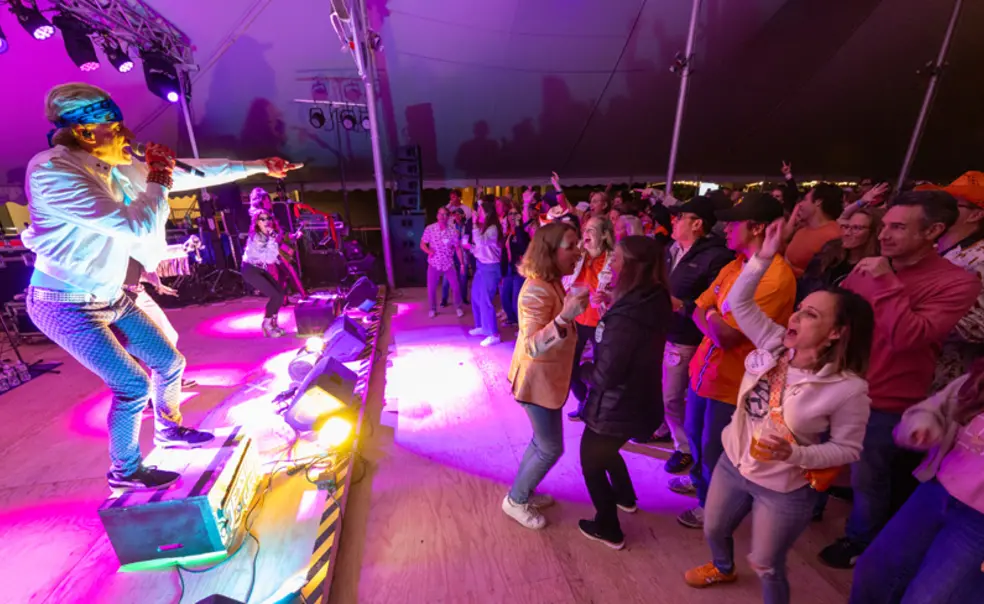Class of 1995 Breaks a Reunions Record Using New ‘Rideshare’
More than 1100 people showed up, aided in part by financial support for classmates
The Class of 1995 set a record for attendance at its 30th reunion where more than more than 1100 attendees (including more than 560 classmates) showed up, aided in part by a rideshare program that provided financial support to classmates to enable them to attend Reunions. In some cases, the class provided some monetary assistance to families and in others it covered the entire cost of attendance.
According to one of the class reunion’s co-chairs, Rick Corcoran ’95, every major class has some mechanism of providing financial assistance to classmates to help them attend Reunions. “But it's almost always been framed as like a footnote to the process … it was never formal,” Corcoran says.
Lisa Hobart ’95 managed communications for the class and included mentions of rideshare program in every message. That approach seems to have paid off.
“It ultimately worked out to be, depending how you want to cut the numbers, something like 5% of the attendance directly was impacted by rideshare,” says class treasurer Adam Lichtenstein ’95 *10.
The program operated on the honor system. Classmates were invited to fill out a form that would only be seen by the Reunions co-chairs and treasurer to ask for assistance. Lichtenstein gave a ballpark figure of 30 families who were assisted by the program — some that included just a classmate attending, and others that brought kids or guests along too.
Corcoran shared that during Reunions, one classmate sent a text asking for help to attend for one day on Saturday. Corocoran texted Lichtenstein to confirm that it was OK and then immediately Venmoed the person, who was able to be in Princeton for the P-rade.
The reason for this flexibility, Corcoran said, was because of the generosity of the class. Hobart described how on the registration form there was a section to contribute an optional donation to Rideshare.
Rideshare ultimately cost the class about $35,000, and two-thirds of that was directly covered by donations from the class.
The name of the program was purposefully linked to the class’s theme: “I-95: The Journey Refueled”. Corcoran says that following Reunions, he’s had calls with other reunion chairs who are planning to adopt the name.
“They just think it's a great name,” he says. “It’s friendly, it’s approachable. People kind of get it.”
It was that inclusivity, Hobart says, that may have drawn so many folks to this year’s gathering (though Lichtenstein noted that the COVID-canceled 25th probably also played a role).
“I think the Rideshare message, in some cases, was … even if it wasn't something they took advantage of, it was just that inclusivity, [that] we want[ed] everybody to come, who possibly has any interest in coming,” Hobart says. “I think that message resonated and brought people back who wouldn't have otherwise made the trip.”










No responses yet